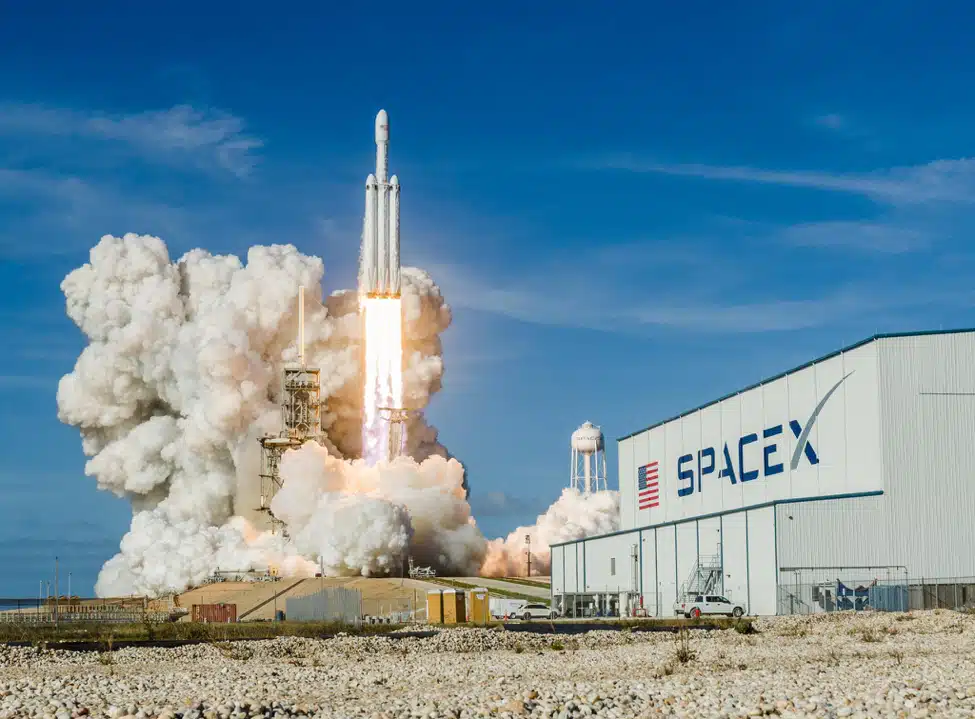SpaceX is seeking approval from the Federal Aviation Administration (FAA) to resume flights of its Falcon 9 rockets, which were grounded following an upper-stage malfunction during a recent launch.
The incident occurred on July 11, during a mission to deploy Starlink satellites from Vandenberg Space Force Base in California. While the first stage of the rocket performed nominally and landed successfully on a drone ship, the second stage developed a liquid oxygen leak, causing it to fail its second burn and leaving the satellites in a lower-than-planned orbit.
Details of the Anomaly
The anomaly has led to SpaceX requesting the FAA to determine that the incident did not pose a public safety risk, thereby allowing the company to resume its array of uncrewed commercial missions while the investigation continues. According to an FAA spokesperson, “The FAA is reviewing the request and will be guided by data and safety at every step of the process.” This process involves evaluating safety-critical systems, the nature and consequences of the anomaly, and the adequacy of existing flight safety analysis.
Jonathan McDowell, an astrophysicist at the Harvard-Smithsonian Center for Astrophysics, explained the likely requirements for resuming crewed missions. “What I would imagine the requirement will be is that they understand what happened, they have a plan to fix it, and they fly at least one non-crewed Falcon 9 to verify the fixes before Polaris Dawn is cleared to go,” McDowell said. This approach ensures that the fixes are validated before any astronauts are put at risk.
Impact on SpaceX Operations
The grounding of Falcon 9 rockets has put a significant pause on SpaceX’s operations, affecting both commercial and potential crewed missions. The company has a busy launch schedule, having accounted for 46 of the 50 missions launched from the Space Coast in 2024 alone. Among the affected missions is the Polaris Dawn, which was scheduled to launch as early as July 31, and NASA’s Crew-9 mission, set for August.
Laura Forczyk, founder and executive director of the Atlanta space consulting firm Astralytical, noted the heightened scrutiny for crewed launches. “It’s going to impact crewed launches more than (regular) launches because they’re going to make sure that they have everything absolutely figured out and safe before they put another crew on board,” Forczyk said. This indicates that while uncrewed missions might resume sooner, crewed missions will undergo more rigorous checks to ensure complete safety.
FAA and SpaceX's Next Steps
SpaceX’s history of transparency about problems will play a crucial role in the FAA’s decision-making process. John Holst, a Florida-based space consultant, mentioned, “These are rare for SpaceX. So SpaceX, I’m sure, is going to try to quickly go through this, but at the same time, the FAA and NASA have their mission-assurance process that they would like to go through and understand exactly what happened.” The FAA’s rules for returning to flight following a mishap are stringent, ensuring that any issues do not affect public safety before flights can resume.
The process of getting approval involves a thorough investigation and confirmation that corrective actions have been implemented effectively. “The FAA’s rules for returning to flight following a mishap are clear,” the FAA stated. “There must either be an acceptance from the agency of the final mishap report and corrective actions implemented, or – assuming the mishap didn’t involve safety-critical systems or otherwise jeopardize public safety – the FAA could agree to a return to flight operations while the mishap investigation remains open.”
Broader Implications
The anomaly and the subsequent grounding of Falcon 9 rockets have broader implications for SpaceX and the space industry. The company has built a reputation for reliability with its Falcon 9 rockets, which have been instrumental in launching various missions, including those for NASA and commercial customers. The swift identification and resolution of the anomaly are crucial to maintaining this reputation and the confidence of its stakeholders.
McDowell highlighted SpaceX’s approach to continuous improvement, stating, “They keep futzing with the design and improving and changing, right? They’re in that Silicon Valley mode, rather than the old NASA mode of, ‘Yeah, once you’ve got it working, don’t change a thing.’” This philosophy of iterative development, while generally beneficial, also introduces risks when changes lead to unforeseen issues, as seen in this case.
The grounding also impacts the broader space industry, where delays in one company's launch schedule can have ripple effects on other planned missions. Brooke Edwards, a space reporter, noted that the Space Coast’s launch schedule, which had been moving at a record-breaking pace, is now largely on indefinite hold due to the grounding. This could affect various commercial and governmental missions, highlighting the interconnected nature of the space launch industry.
As SpaceX works to resolve the issues and return to flight, the industry will be watching closely. The resolution of this anomaly and the subsequent resumption of flights will be critical for maintaining the momentum of commercial space activities and ensuring the continued success of missions to the International Space Station and beyond.



